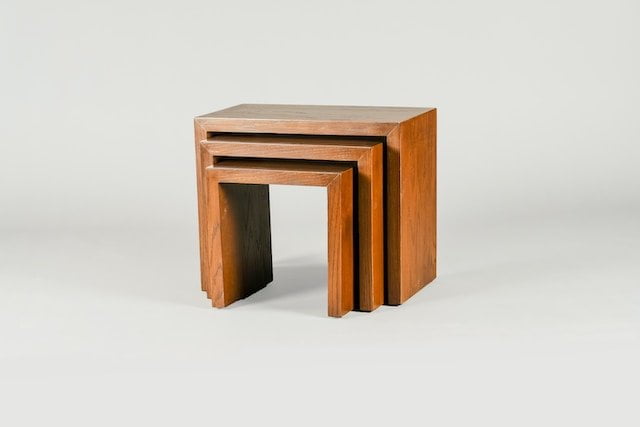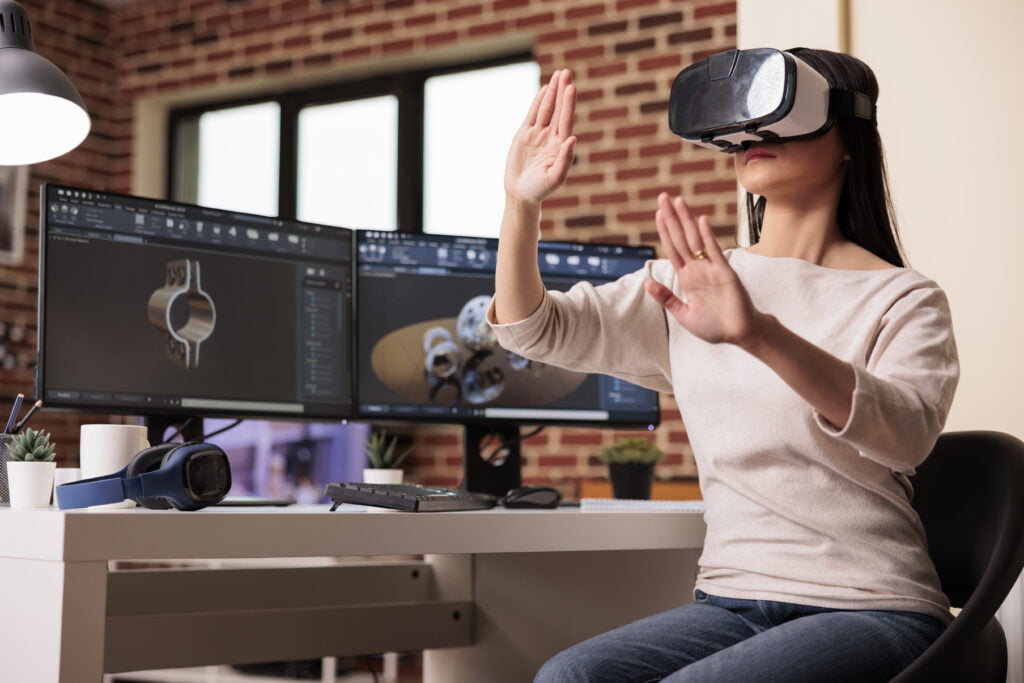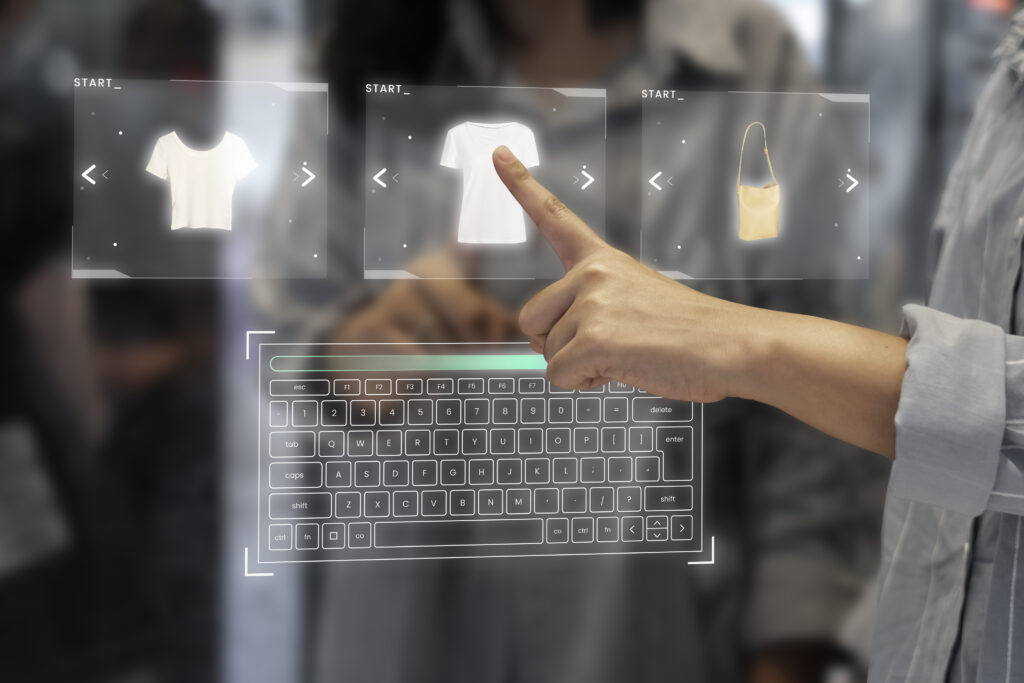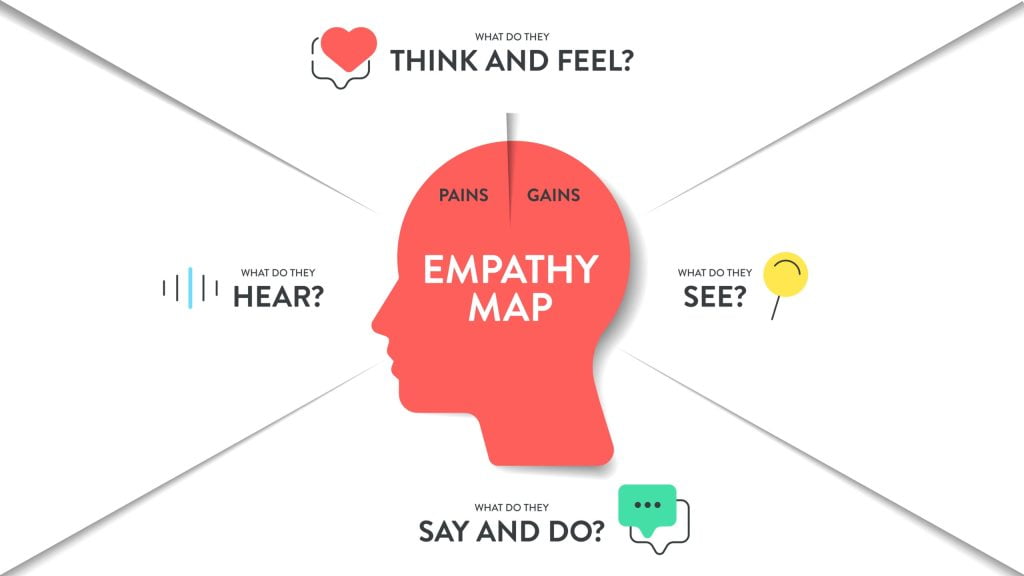How Can the Furniture Industry Benefit from the Metaverse?
Table of Contents:
The Metaverse is far more than it was supposed to be. Starting as purely a social platform for deeper human interaction, it has become an important part of various industries. The Metaverse can enhance e-commerce, be used to promote traditional products, or serve as a market for new, digital industries. This article will be focused on a particular market segment and discuss the benefits for the furniture industry operating in the Metaverse. If this is your area of expertise, then we encourage you to read this article about furniture in the metaverse thoroughly.
The use of NFTs in the furniture industry
The rapid development of digital goods, such as VR penthouses, will drive enormous changes to how businesses function. The furniture industry will not be an exception to that. The first way how it can benefit from the platform is through converting traditional products into NFTs.
Virtual apartment owners will desire to personalize their space. They will do so by purchasing NFTs. Yet, they will probably attempt to use decorations similar to the ones in real life – furniture. While many companies will enter the market with dedicated virtual goods, the furniture industry will have an edge over them – ready projects. By transferring them into NFTs, they will save on designers and open up for new markets.
Additionally, introducing NFT furniture is a way to create an omnichannel customer experience, so desired currently. Selling real-life coaches or beds with a special code that gives access to the virtual versions of these products will let the Metaverse users enjoy the coziness of their homes even in VR, increasing their satisfaction and loyalty as a result.
Unlock the future with Mazer: Your innovation partner.
VR shops and the furniture industry in the Metaverse
Another benefit that the furniture industry operating in the Metaverse can feel has its roots in the customers’ desire for effortless shopping. Virtual fitting rooms are already becoming a popular solution in the clothing industry, yet a similar effect might be achieved with furniture. The only difference is: in the second case, the customers will not only save energy but also time.
Instead of creating a whole shopping experience, furniture shops may introduce product catalogs, along with virtual, adjustable space. The customers are then able to recreate the size and proportions of their rooms and try to fit the furniture in practice while seeing the final results with more than just their imagination. In many cases, it will increase sales, since customers will truly know whether a piece of furniture fits in. This will also affect their satisfaction – they will spend less time on measuring and won’t leave the shop afraid that they had made a mistake in their calculations and will have to return their new bed or shelves back to the store.
Marketing of the furniture in the Metaverse
Finally, the Metaverse is a channel and as such, it may be used to market real-life goods. We have already mentioned transferring furniture into NFTs, to sell the latter, but this might also work the other way around. Digital closets or coaches might invite potential customers to buy the real ones.
Let us focus for example on the virtual real estate market. Every digital apartment will need finishing – the furniture. In some cases, it is left to NFTs, in others they are provided with some basic commodities. But, what if a furniture-making company would start a partnership with a Metaverse real estate agency? It would attract thousands of customers.
Selling NFTs is one thing, but providing one company with digital furniture models is another. If the users like it and discover that it exists in real life, they will be prompted to purchase it. The sales will skyrocket due to this simple, yet effective strategy.
Conclusions
The furniture industry might reap numerous benefits in the Metaverse. From opening up to a new, NFT market, to increasing real-life sales and boosting customer retention and satisfaction. All of these are possible through the ways described in this article, so the takeaway is simple: furniture stores and furniture manufacturers ought to adapt to the Metaverse and begin incorporating it into their business models.
Did you find this article insightful? Don’t forget to share your comments in the section below and check our other article: The Metaverse In The Industry Sector!
How can the furniture industry benefit from the Metaverse through NFTs?
The furniture industry can benefit by converting traditional furniture products into NFTs, which allows them to offer ready projects and personalized virtual decorations to virtual apartment owners, thereby saving on designers and accessing new markets.
How can the use of VR shops benefit the furniture industry in the Metaverse?
VR shops in the Metaverse enable customers to recreate the size and proportions of their rooms virtually and try out furniture before purchasing, leading to increased sales and customer satisfaction due to accurate fitting and reduced decision-making time.
How can the Metaverse be used as a marketing channel for the furniture industry?
The Metaverse can be used to market real-life furniture goods by partnering with Metaverse real estate agencies and providing digital furniture models to attract potential customers, leading to increased sales and customer interest in purchasing real-life furniture products.
Unlock the future with Mazer: Your innovation partner.
Author: Rafał Siejca
Rafal has over twenty years of corporate experience, including roles at Millennium Bank, Comarch, and leading software teams at PZU, one of Europe’s largest insurance companies.As one of Poland’s few true VR experts with a decade of experience, he ensures timely, high-quality project delivery as CEO and CTO.







